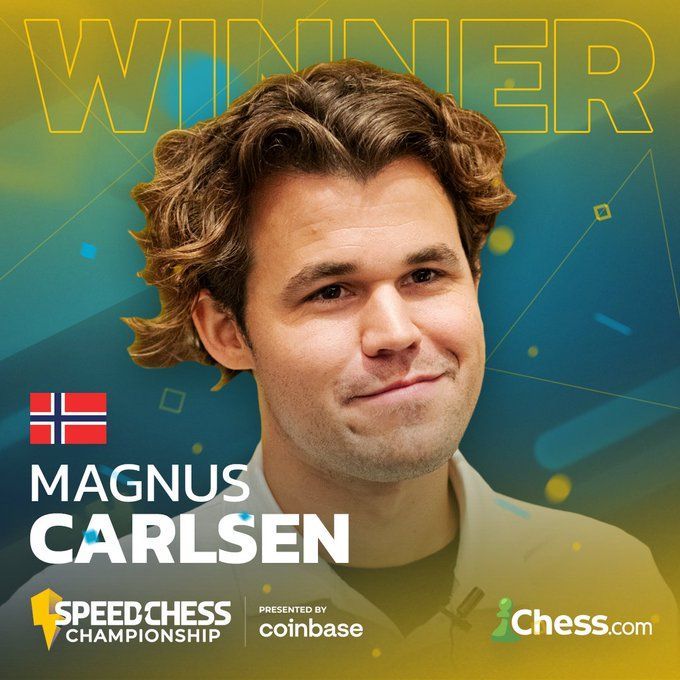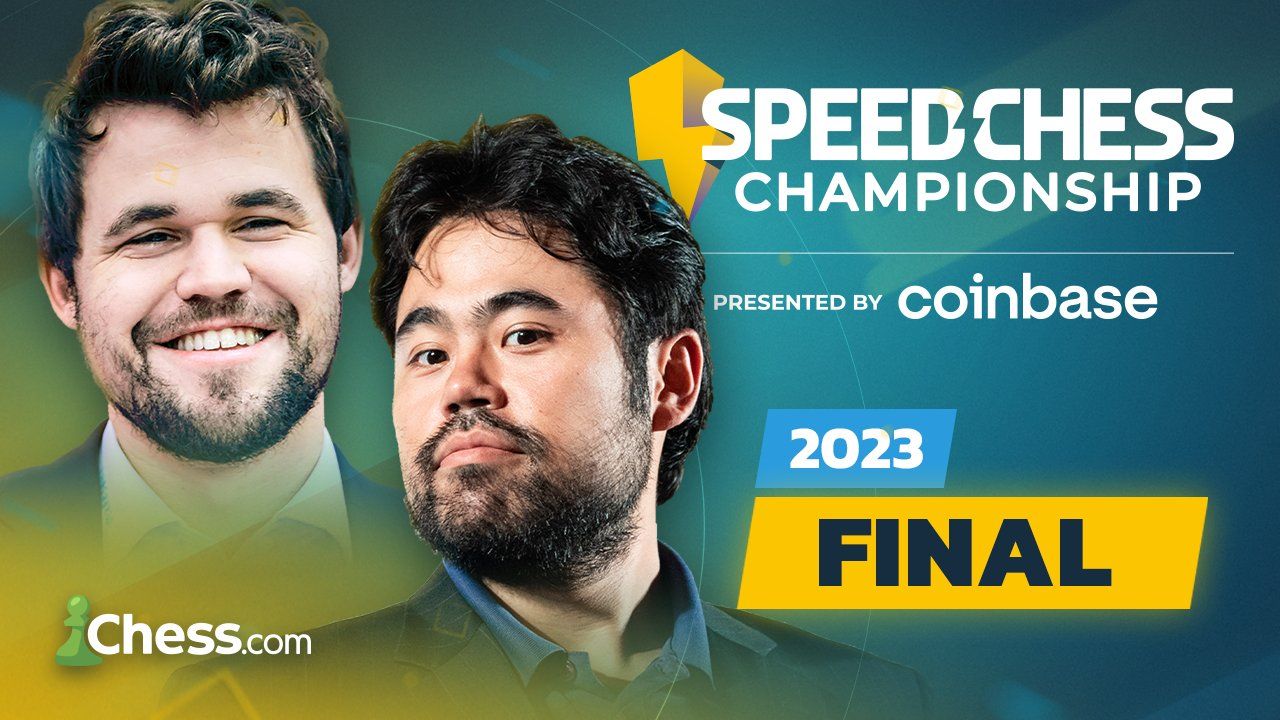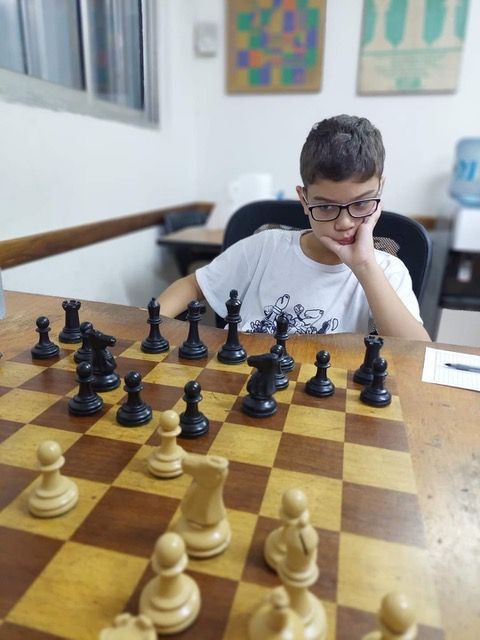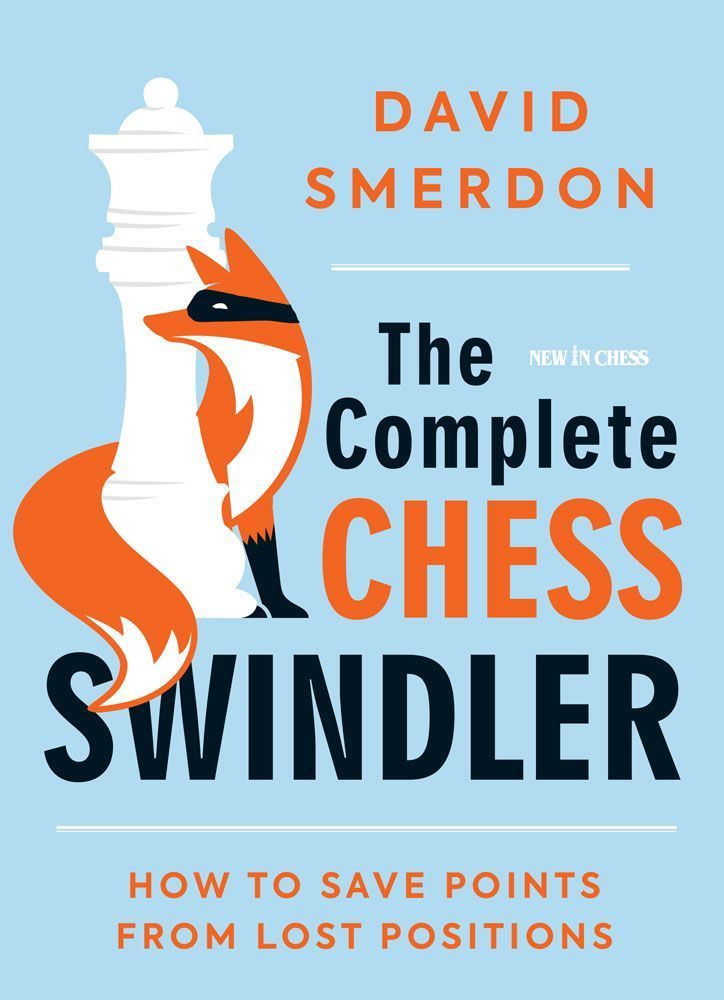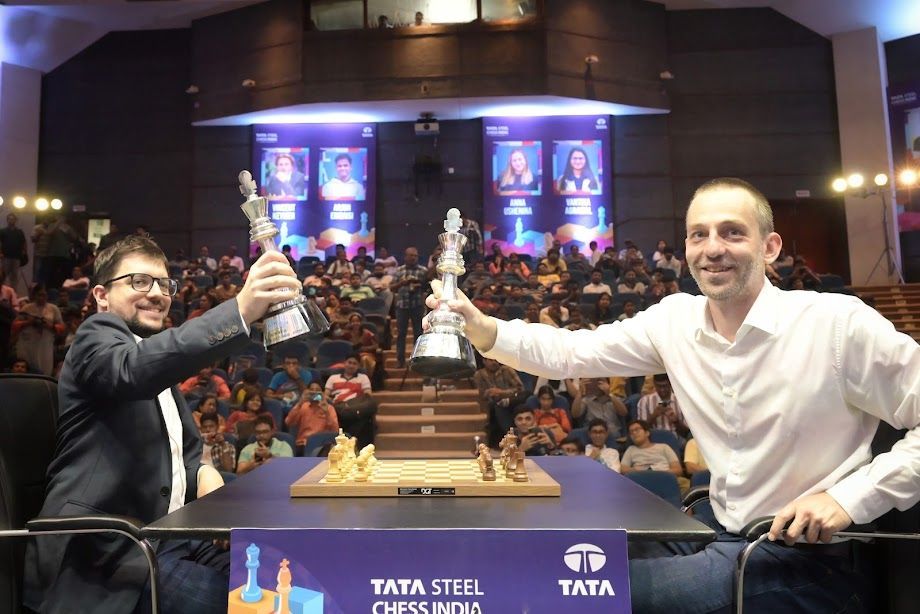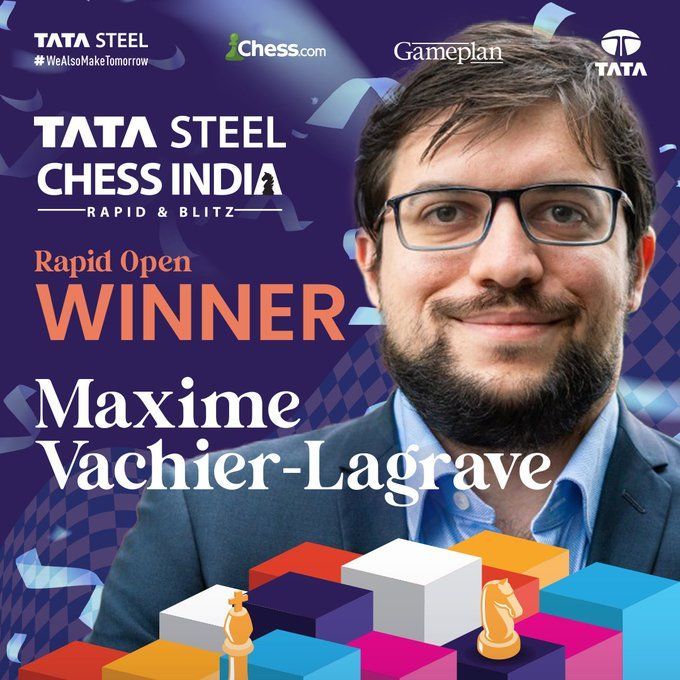It’s A Knockout
While knockout tournaments are the norm for many of the world’s sporting events, there’s many in the chess world who believe that the knockout format used in the ongoing FIDE World Cup in Tbilisi, Georgia, to be a relatively new experiment in the chess world – but, in fact, this system is a venerable one with a lot of history attached to it, as it was used for the first-ever international chess tournament that was held in London in 1851 and organised by Howard Staunton.
But knockout tournaments were not long after that almost totally abandoned in chess for more than a century from the late 19th to the late 20th centuries. And I remember well the shock when they were reintroduced: first, a couple of times in the early 1990s in Tilburg, the Netherlands, and then when Garry Kasparov and Nigel Short split from FIDE in 1993, the game’s governing body followed Tilburg’s lead with six knockout world championships up to 2005, which morphed into their current World Cup events.
In one of those knockout world championships, in 2002, Vassily Ivanchuk was the heavy favourite to win by the pundits and fans alike – but the temperamental Ukrainian dramatically lost to his young countryman, Ruslan Ponomariov (ably assisted by his even younger official second for the match, Sergey Karjakin, who at the time had just turned 12!). Since then, he’s been plagued by erratic performances in major competitions, garnering the reputation of being a “choker”.
The über-talented Ivanchuk was a leading player during the Kasparov era, and everyone thought one day he would become world champion, but didn’t. Last year he did win the World Rapid title in Qatar – but now, at 48, and the oldest player in the 128-player starting field for the FIDE World Cup, who wouldn’t wish to see the people’s champion winning a major classical title late in life?
After turning on the style to outplay and beat ex-world champion Vladimir Kramnik in the previous round of 32, Ivanchuk has now become the first player to make it into the quarterfinals of the $1.6m World Cup after beating the young Dutch star, Anish Giri. And he’ll be joined there by Levon Aronian of Armenia and China’s Ding Liren, with the rest of the matches remaining tied and now going down to the nerve-wracking decider of tomorrow’s speed tiebreaks.
World Cup Final-16
Svidler 1-1 Bu*; MVL 1-1 Grischuk*; Ivanchuk 1½-½ Giri; Aronian 1½-½ Dubov; So 1-1 Jobava*; Fedoseev 1-1 Rodshtein*; Rapport 1-1 Najer*; Ding Liren 1½-½ Wang Hao.
The brackets showing the full results (and final tiebreak scores when completed) is available at the official site by clicking here.
GM Vassily Ivanchuk – GM Anish Giri
FIDE World Cup, (4.1)
Petroff’s Defence
1.e4 e5 2.Nf3 Nf6 Before the revival of the Berlin ‘Wall’ Defence during the Kramnik-Kasparov World Championship match in London in 2000, the Petroff’s Defence was the dreaded drawing system Black player’s would adopt to thwart aggressive opponents. Nowadays, the Petroff is more akin to a Sicilian Najdorf compared to the Berlin! 3.d4 Nxe4 4.Bd3 d5 5.Nxe5 Nd7 6.Nxd7 Bxd7 7.0-0 Bd6 8.Qh5 Qf6 The early queen sortie from Ivanchuk is a bit awkward to deal with, especially as 8…c6 is easily answered with 9.Bxe4 dxe4 10.Nc3 g6 11.Qh6 f5 12.f3! and suddenly the game is opening up with Black’s king still stuck in the middle of the board. 9.Be3 Also possible was the more “adventurous” 9.Nc3!? Qxd4 10.Be3 but after 10…Qe5 11.Qxe5+ Bxe5 12.Nxd5 Nf6 13.Bf4 Bxf4 14.Rfe1+ Kf8 15.Nxf4 in typical Petroff fashion, the pieces are quickly coming off the board to leave a somewhat sterile position. 9…0-0-0 10.Nc3 Ivanchuk turns down the opportunity to snatch the pawn with 10.Qxd5!? and claim an advantage – but it could get a little murky after 10…Rde8 11.Nc3 (Not 11.Bxe4 c6! and Black has good prospects of emerging with compensation for the pawn.) 11…Nxc3 12.bxc3 Qh4 13.g3 Qf6 14.Bg5 (if not this, then …Bc6 and …Qf3 is winning.) 14…Qe6 15.Qxe6 Bxe6 with White a pawn up, but not so easy to convert the advantage due to the state of the queenside pawn structure. So rather than trying to win with this, Ivanchuk instead opts for a different sort of middlegame where the queens stay on the board and his rooks dominate the e-file. 10…Nxc3 11.bxc3 Qe6 Black has to stop …Bg5 and think of defending the d-pawn – but in doing so, it allows Ivanchuk to seize the e-file for his rooks. 12.Rfe1 f6 13.Bd2 Qg8 14.Rab1 Kb8?! I don’t know what “ghosts” Giri was perhaps seeing here, but this looks like a wasted move. He had to contest the e-file and defend what should be a holdable ending from there; so he should have played 14…Re8! 15.Rxe8+ Bxe8 16.Qf3 Bc6 where White has the advantage, as Black’s position is still rather awkward. 15.h3? A missed opportunity that offers Giri a little respite after his wasted king move. Ivanchuk should have followed through now with the attack and the dangerous looking 15.Qf3! with the major threat of 16.c4! crashing through to Black’s king. 15…b6 16.Ba6 g5 17.Qf3 g4! If Giri didn’t have this, he was soon going to be overwhelmed on the queenside with forcing moves like c4 and a4 that will bludgeon a way through to Black’s king. 18.hxg4 Bxg4 19.Qxf6 Rf8 20.Qh4 Ivanchuk’s hesitation has now gifted Giri the momentum – and despite being a pawn down here, Black is very much on top with his active pieces aimed at White’s kingside, but he misses an open goal. 20…h5? In what proves to be the most decisive moment of the match, Giri misses the very strong plan of 20…Rf5! threatening to play …Rh5 and a crushing kingside attack. Just how was Ivanchuk going to stop this simple and straightforward plan? One way with 21.Be2 is soon foiled by 21…Bxe2 22.Rxe2 Qg6! and again White is caught down the h-file, as offering the queen exchange with 23.Qh6 is strongly met by 23…Rh5! either mating or winning a lot of material. This was indeed a major moment in the game for Giri – and later the young Dutch star will be kicking himself for squandering this opportunity. 21.Bg5 Rh7 22.Re3! Black’s back-rank is now vulnerable – and Ivanchuk pounces to exploit this by doubling rooks on the e-file. 22…Bc8 23.Bxc8 Kxc8 24.Rbe1 Qg6 25.Be7 Bxe7 26.Rxe7 The rook on the seventh is going to be a major headache for Giri to deal with – especially if he doesn’t find a way very quickly to exchange queens to lessen the threats to his king. 26…Qxc2 27.Qg3 Rxe7 28.Rxe7 Qc1+ 29.Kh2 Qf4 30.f3 a5 31.Re5 The ending is lost for Black, and not just because he is going to lose a pawn. The real problem for Black here is that, when the queens do come off, the ensuing rook ending will see White’s rook returning to the e-file cutting the Black king from crossing the board to try to stop White’s kingside pawns marching home. 31…Qf7 32.Qh3+ Kb7 33.Rxh5 a4 34.Rh7 Qf4+ 35.Qg3 a3 36.Qxf4 Rxf4 37.Re7! (see diagram) The endgame technique from Ivanchuk is spot on! He’s going to play Re3 and then pushing his kingside pawns – and there’s no defence. 37…Rf6 38.Re3 Rh6+ 39.Kg1 Ivanchuk gives Giri nothing – by retreating, he stops Black’s rook getting behind the pawns that would at least offer up some sort of spirited resistance. 39…Ka6 40.f4 c5 41.f5 1-0 Giri resigns, as there’s no way to stop g4-g5 and the pawns running unchallenged up the board.



